Anthropology
-
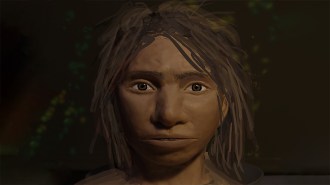 Humans
HumansAncient DNA reveals the first glimpse of what a Denisovan may have looked like
A controversial technique reconstructs a teenage Denisovan’s physical appearance from genetics.
By Bruce Bower -
 Humans
HumansAn island grave site hints at far-flung ties among ancient Americans
Great Lakes and southeastern coastal hunter-gatherers had direct contact around 4,000 years ago, a study suggests.
By Bruce Bower -
 Humans
HumansCulture helps shape when babies learn to walk
The culture in which a baby is raised can accelerate or slow down the development of early motor skills. Does it matter?
By Sujata Gupta -
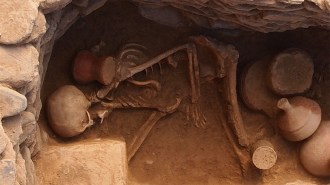 Humans
HumansDNA indicates how ancient migrations shaped South Asian languages and farming
Farming in the region may have sprung up locally, while herders from afar sparked language changes.
By Bruce Bower -
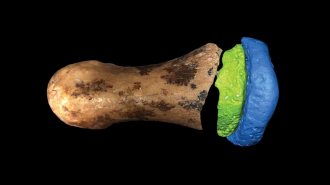 Anthropology
AnthropologyThis ancient Denisovan finger bone is surprisingly humanlike
Despite Neandertal ties, extinct hominids called Denisovans had a touching link to humans, a new study finds.
By Bruce Bower -
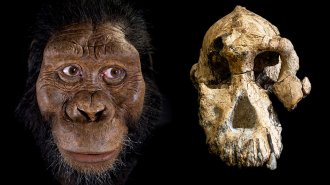 Humans
HumansA 3.8-million-year-old skull reveals the face of Lucy’s possible ancestors
A fossilized hominid skull found in an Ethiopian desert illuminates the earliest-known Australopithecus species.
By Bruce Bower -
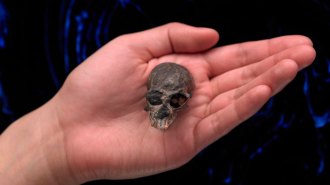 Anthropology
AnthropologyA tiny skull fossil suggests primate brain areas evolved separately
Digital reconstruction of a fossilized primate skull reveals that odor and vision areas developed independently starting 20 million years ago or more.
By Bruce Bower -
 Humans
HumansIndia’s Skeleton Lake contains the bones of mysterious European migrants
Not all of the hundreds of skeletons found at a north Indian lake are from the same place or period. What killed any of these people is still unknown.
By Bruce Bower -
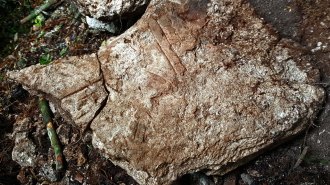 Anthropology
AnthropologyAncient Maya warfare flared up surprisingly early
Extreme conflicts broke out well before the decline of the Maya civilization, researchers say.
By Bruce Bower -
 Archaeology
ArchaeologySatellites are transforming how archaeologists study the past
In ‘Archaeology from Space,’ Sarah Parcak takes readers on a lively tour of the past, and archaeology of the 21st century.
By Erin Wayman -
 Health & Medicine
Health & MedicineReaders inquire about measles, vaccine hesitancy and more
Readers had questions about vaccine-hesitant parents, measles and DNA sequencing.
-
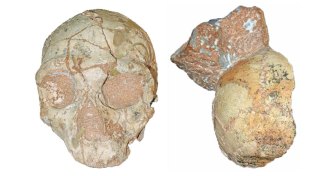 Anthropology
AnthropologyA Greek skull may belong to the oldest human found outside of Africa
Humans possibly reached southeastern Europe by 210,000 years ago.
By Bruce Bower